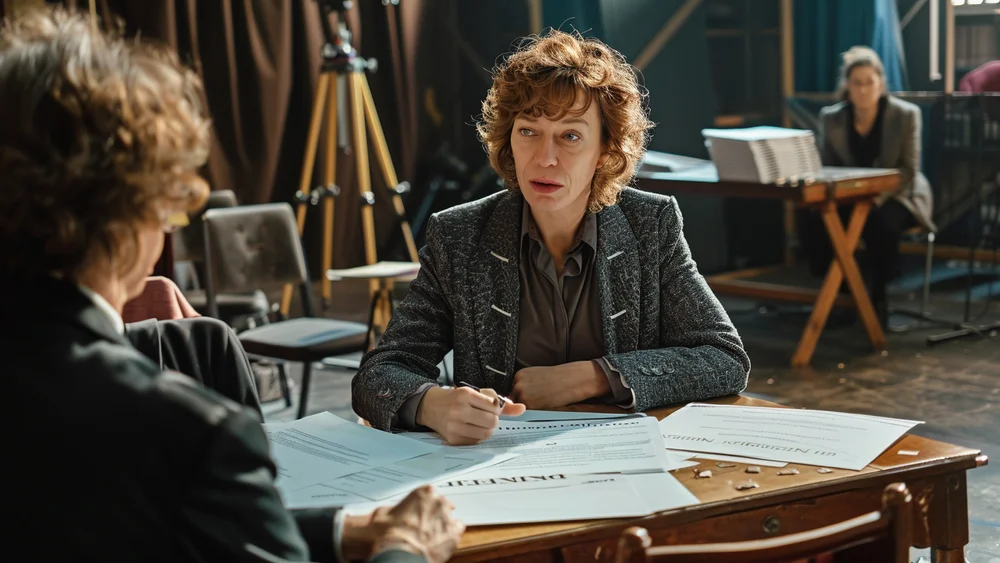Theater production contracts can often feel overwhelming. Have you ever wondered what your rights are when it comes to creative control? Understanding your rights is key to protecting yourself from unforeseen complications, such as disputes over script changes, casting decisions, or even ownership of the final production. By clearly outlining responsibilities and expectations in your contract, you can avoid many of these challenges and ensure a smoother creative process.
We’ll explore the key clauses that should never be overlooked. Also, we’ll discuss strategies to ensure you’re in tune with the legal requirements. And advocating for your needs effectively. From start dates and compensation to intellectual property rights, each aspect of the contract holds significant implications for your work. So, how can you negotiate terms that respect your vision and ensure a smooth production process? Keep reading as we break down the complexities of theater production contracts into clear, actionable insights.
Become One of 8,000+ Innovators Transforming the Future your Business!
Subscribe and access over 300 editable and downloadable contracts
Understanding Clauses in Theater Productions Contracts
Start Dates and Duration
Do not overstate the significance of clear timelines in theater contracts. It’s essential to specify the exact start and end dates of the accord to avoid any confusion or legal disputes. This clarity helps to plan and ensures all parties are aligned on the production’s timeline.
Rights and Responsibilities of the theater production contracts
This section of the accord delineates what is expected from each party. It’s crucial to clearly define these elements to prevent disputes over who is to do what. The theater production contracts should explicitly:
-
- State the responsibilities of the producer, director, actors, and other crew members.
-
- The rights they are entitled to during and after the production.
Compensation Details

Ensuring the agreement clearly outlines how and when compensation will be disbursed is fundamental. This not only includes salaries or fees but also potential royalties. The contract should address delays in payment and any penalties for such occurrences.
Termination Clauses
Understanding the conditions under which theater production contracts can be terminated is vital. This section should include details on breach of contract, mutual agreement for termination, and other conditions that might lead to the dissolution of the agreement.
Guiding Rights and Creative Control in Theater Production Contracts
Intellectual Property
It’s necessary to protect two aspects: the play and the rights of its creators. The theater production contracts should specify who holds the copyright to the play, under what conditions the play can be modified, and how the creators are credited in various scenarios.
Creative and Script Approval

Balancing creative freedom with contractual obligations can be tricky. So, the contract allows for some creative input from the relevant parties. While also clearly stating who has the final say in creative decisions.
Use Rights for Recordings and Adaptations in the theater production contracts
Understanding the extent of usage rights for different media is crucial. The theater production contracts should clearly state whether the production can be recorded, broadcasted, or adapted into other formats and under what conditions.
Pitfalls in Theater Contracts and How to Avoid Them
Vague Language and Undefined Terms
Ambiguity in a contract can lead to misunderstandings and legal disputes. Ensure that all terms are clearly defined, and the language used is precise.
Overlooking Rehearsal and Performance Schedules
It’s fundamental to ensure that schedules are realistic and respect all parties’ time and commitments. The contract should clearly outline rehearsal and performance dates and times, including any potential for changes.
Ignoring Long-term Implications
Theater production contracts should address immediate concerns and consider long-term implications. This includes rights after the show has ended, such as recordings, streaming, or future productions.
Effective Negotiation Strategies for Theater Contracts
Preparation and Knowledge
Enter negotiations well-prepared, understanding your needs, rights, and those of the other party. This knowledge will help to make proposals that address the needs of all involved.
Listening and Addressing Concerns

Effective negotiation is as much about listening as it is about talking. Understand the other party and try to find solutions that address these concerns.
Flexibility and Creativity in Solutions
Sometimes, the best solution isn’t the most obvious one. Being flexible and creative can lead to outcomes that satisfy all parties. Besides, it leads you to a more successful production.
Insights from Theater Production Contracts
Steering theater production contracts is crucial for protecting your artistic and financial interests. We’ve explored the importance of understanding key clauses such as start dates, compensation, and intellectual property rights, which are essential for a smooth and dispute-free production process. Additionally, we discussed the significance of maintaining creative control while fulfilling contractual obligations, ensuring that your vision isn’t compromised.
Theater contracts can be complex, but with the knowledge and strategies, you can negotiate terms that honor your creative integrity and ensure operational success. Remember, clarity and precision in contract language prevent misunderstandings and protect your rights in the long run. As you move forward, keep these insights in mind to navigate the complexities of theater production with confidence and assertiveness. Let these lessons empower you to advocate for your needs and craft agreements that reflect the value of your creative contributions.






